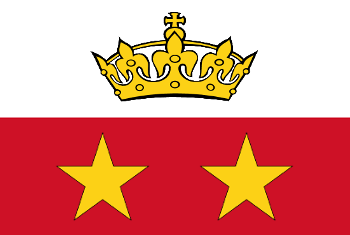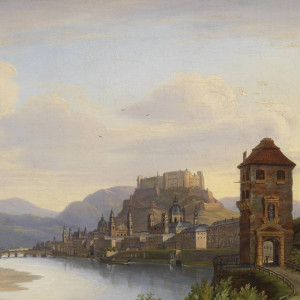
Table of Contents
South Vorus is one of two successor states of Vorus, formed after the Voran Civil War. It is ruled by Reginald Turdy as a Monarchy with a council of mages and psions, known as the Council of Mages and various noble houses holding significant power. It's capital city, Windamere lies on the mainland and the kingdom includes lands on Urt.
South Voran Factions
- House Demha
- House Elwyn
- House Ferency
- House Frost
- House Golika
- House Naikl
- House Sterker
- House Tenderfoot
- House Treny
South Voran Power Structures
South Vorus is primarily located on the mainland, and as such the area on Urt, including the city of Duirt, are a peripheral – but economically significant – area.
South Vorus mixes noble families, a royal family and a council of mages in its governing structure, and as such, its politics are easily the most complex amongst the three nations that surround Duirt. Generically speaking, the King holds primacy while the noble houses and Council share the rest of the power.
South Voran Noble Houses
Noble Houses own and control the land. They swear fealty to higher ranking noble houses who eventually swear fealty to the king. Titles for Voran noble houses are (in order of importance) Baron / Viscount, Count / Marquess and Duke. A Voran noble may have more than one such title, in which case the highest ranked one determines the proper form of address.
Barons and Viscounts are equally ranked titles and are associated with a specific area of land, usually including at least one town. The difference is that a Viscount has given away part of his lands in Fief to minor noble families (see below) and they control part of his lands, while a Baron does not. This means the Viscount has other nobles under him but he controls less land himself, while a Baron controls everything himself, but he has no noble families under him. The title of Baron cannot be compared to a similar title in Eccles. Barons and Viscounts swear fealty to a Duke or the King directly, but never to a Count or Marquess.
Count and Marquess are higher ranked titles, both equal to one another, and they too are associated with a specific area of land, but these area's are much larger than Baronies and Viscounties and usually include a city within the area, though this is not required. Counts and Marquesses always give out part of their domain to govern to untitled noble families in Fief, similar to a Viscount, but control large area's of land themselves as well. The difference between the titles of Count and Marquess is largely cultural and no clear distinction can be made between the two. Usually a Marquisate is older than a County. The title of Count cannot be compared to a similar title in Eccles. A Count or Marquess swears fealty to a Duke or to the King directly.
Duke is a special title which is conceptually different from the titles of Baron, Viscount, Count or Marquess, because it does not come with actual holdings. There is no land or mansion which is associated with a duchy, but instead, it is associated with several lower level holdings (baronies, viscounties, counties and marquisates) which fall under the Duke. Since a Duchy has no holdings of its own, a Duke must hold at least one lower title in addition to the title of Duke, which is called his personal demesne. Thus, the Duke of A may also be the Count of B, while having a vassal, the Baron of C who has sworn fealty to the Duke of A. The demesne of the duke (that is, his lower level holdings) plus the holdings of the barons, counts, viscounts and marquesses who have sworn fealty to him are collectively referred to as a Duchy.
Above all the nobles is the King and his family. After the Voran Civil War, various noble families on the mainland lost holdings to the King who now has significant holdings of his own.
Besides noble houses, there are also untitled noble families sometimes called Minor Houses, which are not considered proper noble houses, but which are considered to be nobles and who's children are also nobles. Sometimes these are knights and their descendants or they are Cadet branches of the proper noble houses.
Council of Mages
Historically, Vorus has had a Council of Mages consisting of the wisest and most powerful wizards, psions and other arcane casters in the Kingdom. . They advise and support the king in making policy, and answer only to the king directly. As such, they are not subject to the nobility and don't pay taxes to them.
The Council of Mages consists of the most powerful Mages and Psions in the country and they represent all arcane magicians in the nation. Members of the Council are called Councillors and are appointed by the existing Council, with the King being able to veto an appointment.
Locally, the system is often mirrored, and nobles often have their own Council of Mages to advise and aid them, especially when they have lower nobles under them.
Mages themselves are organized in Schools, sometimes called universities, where apprentices learn magic from more skilled superiors. In Duirt, this is the Ivory Tower. Schools by law have the right to educate any magically inclined individual, ensuring a fresh supply of new mages remains available.
A mage who teaches at a school is called a Master, and one who has reached the highest pinnacle of the magical arts is called an Arch Mage. These positions are not hereditary but is granted on personal merit.
Most Councillors are heads of a School, but this is not required. All of them are Arch Mages.
The title of Arch Mage should not be confused with the Archmage class.
Nobles in South Vorus
South Vorus recognizes noble houses. In the city of Duirt, there are six Voran noble houses present, namely House Demha, House Elwyn, House Ferency, House Naikl, House Tenderfoot and House Treny. House Demha holds a Viscounty, House Elwyn holds a Marquisate, House Ferency holds a Viscounty, House Naikl holds a County, House Tenderfoot holds a County and is holder of the local Duchy and House Treny holds a Barony. Notably, all six houses are sworn directly to King Reginald, and as such, the higher ranking houses do not hold power over the lower ranking ones. House Frost is amongst the minor noble houses in the city.
Houses consist of the House leader and his wife and children / grand-children, plus uncle's, aunts, cousins and so on, though only the House leader holds direct power.
Succession in Vorus is Agnatic-Cognatic Primogeniture, meaning the oldest son inherits everything and all other sons get nothing, but if there are no sons, the oldest daughter inherits instead. Family members hold no official sway in decisions of the house, but they often have influence due to their relation with the house leader.

